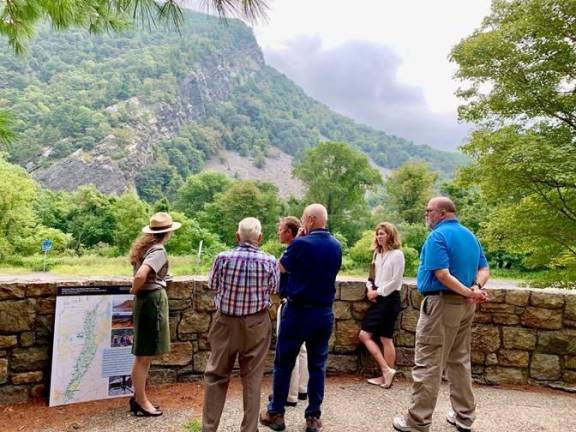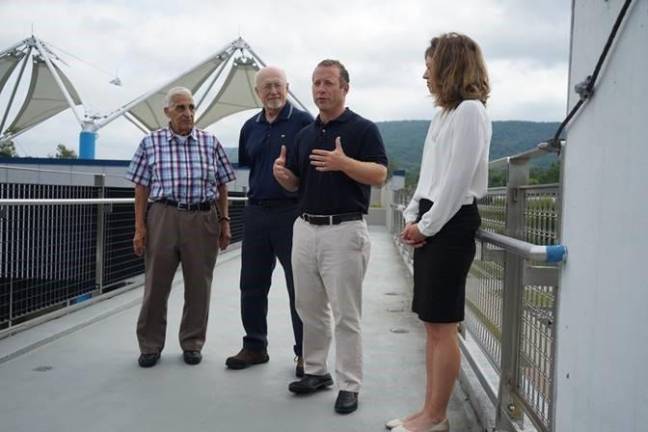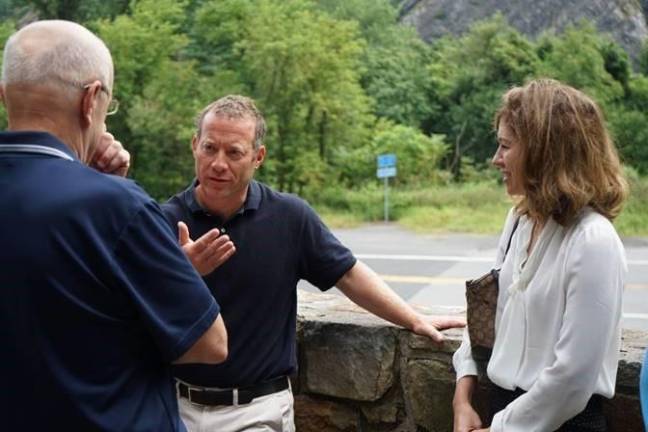


On Wednesday, Sept. 4, 2019, U.S. Representative Josh Gottheimer (NJ-5) toured the Delaware Water Gap Recreation Area with Delaware Water Gap Superintendent Sula Jacobs, Knowlton Mayor Adele Starrs, Hardwick Mayor Kevin Duffy, Hardwick Deputy Mayor Alfred Carrazzone, Knowlton Councilman Bob McNinch, and Knowlton Councilman Frank Van Horn, to discuss how the Delaware Water Gap can become a more attractive tourism destination and what federal resources are necessary to preserve its natural beauty. U.S. Rep. Gottheimer met with local elected officials to discuss infrastructure, recreation area services, and critical safety investments, including the proposed rockwall along I-80 in Knowlton.
The I-80 rockwall is a proposed $51 million New Jersey Depertment of Transportation (NJDOT) plan along the face of a rock wall in Knowlton. Gottheimer, along with local officials, continued to seek more information on other options that would save taxpayer dollars and keep drivers safe. They also discussed the I-80 S-curve, where dozens of accidents occur every year, and what could be done to make that corridor safer for drivers.
“I continue to hear from people all over the area about the proposed rockwall along I-80 in Knowlton. I am working with all parties, including the NJDOT, to find a solution that ensures the safety of drivers along the corridor while not impacting the local economy,” said Congressman Josh Gottheimer (NJ-5).
In May, Gottheimer announced his five-point Green Action Plan, which included preserving national parks and national recreation areas like the Delaware Water Gap. In 2018, Gottheimer led a bipartisan effort that clawed back over $1 million more for the Delaware River Basin Restoration Program that develops a coordinated approach to identify, prioritize, and implement restoration and protection activities across the Basin. It also provides a competitive grant and technical assistance program to support on-the-ground work by state and local governments, non-profit organizations, and universities.